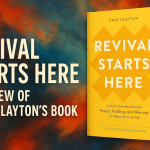 This morning I opened a package which contained the new book by David W. Congdon on Rudolf Bultmann
This morning I opened a package which contained the new book by David W. Congdon on Rudolf Bultmannwritten in the excellent Cascade Companion series published by Cascade Books. I read the introduction and briefly scanned the table of contents. My eye caught the title of the final chapter, “Advent.”
It is of course the season of Advent and my family are in the middle of the second week of practice. So curious I opened up to the final chapter and started reading. Cascade Companion volumes are short forays into subjects so the chapter is brief and concise. In it Congdon captured Bultmann with “theologian of the Advent” (p. 146). By that he means that the heart of Bultmann’s theology is the paradox of the coming of Jesus that is captured in Advent, the season when the church looks both backward and forward at the same time. To look at back at Jesus’ birth is to also look ahead to his second coming. Advent captures, at the same time, the coming(s) of Christ–not as two separate events, but as one:
Faith sees the birth of Jesus as the advent of the eschatological Lord, who comes to judge the living and the dead (148)
Congdon surveys several of Bultmann’s sermons he preached during Advent. There are 13 sermons devoted to Advent and Christmas in Bultmann’s published collection of sermons. The theme that emerges in these sermons reflects the theology in his academic work: the presence of Jesus demands decision. Jesus’ advent, his coming, is perpetual. While Jesus’ coming is actually past and future historically speaking, in the Word, Jesus is present now: “we await one who has already come, who is already here” (154).
Bultmann’s theological conviction becomes concrete a call to the pattern of living expectantly. Not for so much for the physical coming of Jesus, but expectant of an encounter with the present Jesus, one available to every believer every day. As Bultmann put it, “For the Christian perhaps all seasons are essentially an Advent season” (157).
The Christian must therefore adopt a posture and practice of perpetual expectancy. Every moment is an opportunity to encounter Christ and open oneself to “the gift of God’s future”. For those who participate by faith in God’s renewal of all things, every day holds the possibility of becoming the occasion of Christ’s advent (158).
I am surprised to find that the most significant and transformative spiritual lesson I’ve learnt this Advent came from the sermons of Rudolf Bultmann.















